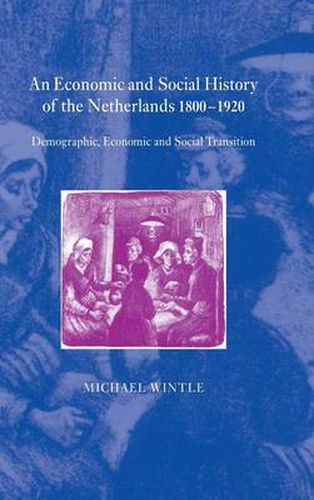Readings Newsletter
Become a Readings Member to make your shopping experience even easier.
Sign in or sign up for free!
You’re not far away from qualifying for FREE standard shipping within Australia
You’ve qualified for FREE standard shipping within Australia
The cart is loading…






An Economic and Social History of the Netherlands 1800-1920 provides a comprehensive account of Dutch history from the late eighteenth to the early twentieth century, examining population and health, the economy, and socio-political history. The Dutch experience in this period is fascinating and instructive: the country saw extremely rapid population growth, awesome death rates, staggering fertility, some of the fastest economic growth in the world, a uniquely large and efficient service sector, a vast and profitable overseas empire, characteristic ‘pillarization’, and relative tolerance. Michael Wintle also examines the lives of ordinary people: what they ate, how much they earned, what they thought about public affairs, and how they wooed and wed. This is the only single-authored book currently available in English on this crucial period of Dutch history, and it will be of central importance to Dutch specialists, as well as European historians more generally.
$9.00 standard shipping within Australia
FREE standard shipping within Australia for orders over $100.00
Express & International shipping calculated at checkout
An Economic and Social History of the Netherlands 1800-1920 provides a comprehensive account of Dutch history from the late eighteenth to the early twentieth century, examining population and health, the economy, and socio-political history. The Dutch experience in this period is fascinating and instructive: the country saw extremely rapid population growth, awesome death rates, staggering fertility, some of the fastest economic growth in the world, a uniquely large and efficient service sector, a vast and profitable overseas empire, characteristic ‘pillarization’, and relative tolerance. Michael Wintle also examines the lives of ordinary people: what they ate, how much they earned, what they thought about public affairs, and how they wooed and wed. This is the only single-authored book currently available in English on this crucial period of Dutch history, and it will be of central importance to Dutch specialists, as well as European historians more generally.